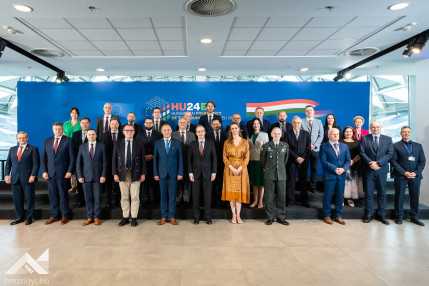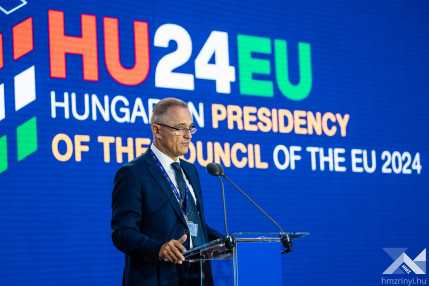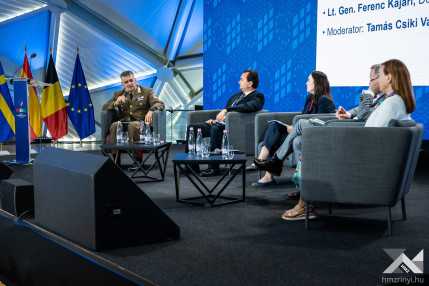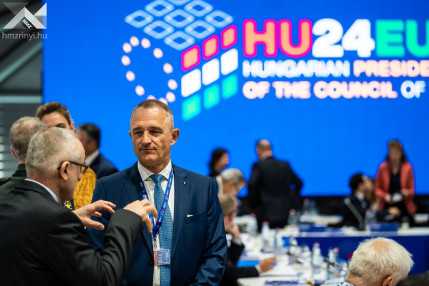Meeting of EU Defence Policy Directors in Budapest
Text: Ministry of Defence | Photo: Gergely Schöff | 14:33 July 19, 2024Within the framework of the Hungarian presidency of the Council of the EU, the Bálna Defence Centre in Budapest hosted the informal meeting of EU defence policy directors on 17 July. The session was chaired by Charles Fries, Deputy Secretary General for Peace, Security and Defence of the European External Action Service (EEAS).

At the meeting, the defence policy directors discussed the military situation in Ukraine and looked into the support measures of the EU to help Ukraine defend its sovereignty, independence and territorial integrity. The member states reaffirmed their commitment to continuously supporting Ukraine and reported about their support. According to the consistent Hungarian viewpoint, the Hungarian delegation emphasized the importance of an immediate ceasefire and peace talks, referring to the related negotiation efforts of Hungarian Prime Minister Viktor Orbán.
In what followed, while negotiating the current issues, the participants touched upon the security challenges in the Sahel, the Gulf of Guinea and the Red Sea regions, their impacts and the EU’s engagement in these areas. In connection with the developments in the Sahel, they agreed that defence professional communication channels must be kept open in the region. In this context, the Hungarian side underlined the importance of building relations in Chad. Related to the security challenges in the Western Balkans, the EU member states praised the Hungarian command of the EUFOR Operation ALTHEA. The defence policy directors also covered the process of establishing the EU Rapid Deployment Capacity (RDC), which is making good progress based on the evaluations, but requires a long-term commitment.

The EU defence policy directors also debated the efforts made to improve the EU’s general defence readiness, strengthen the European defence technological and industrial base (EDTIB) and to enhance the industrial capacities, with special regard to implementing the European Defence Industrial Strategy (EDIS) and providing the required financing. The participants were informed about the current state of the proposed European Defence Industry Program (EDIP) Regulation, underlining that the goal of the Hungarian presidency is to accept the Council’s general approach by the end of the year so that the regulation can be approved by the middle of 2025. The plan of the Hungarian presidency was equally supported by the EEAS and the member states.
Before the session, there was a high-level workshop on 16 July about the Permanent Structured Cooperation (PESCO) supporting the EU’s defence capability development. The event supported the PESCO’s ongoing Strategic Review. At the beginning of the workshop, the acting security and defence policy director of the EEAS summarized the results of the first phase of the PESCO Strategic Review. This was followed by two panel discussions.
In the first panel discussion, the participants talked about the experiences related to carrying out the PESCO projects, besides introducing the case study of a successful PESCO project. Possibilities for strengthening the coherence among EU capability development initiatives and their incentives were the focus of the second panel discussion.







